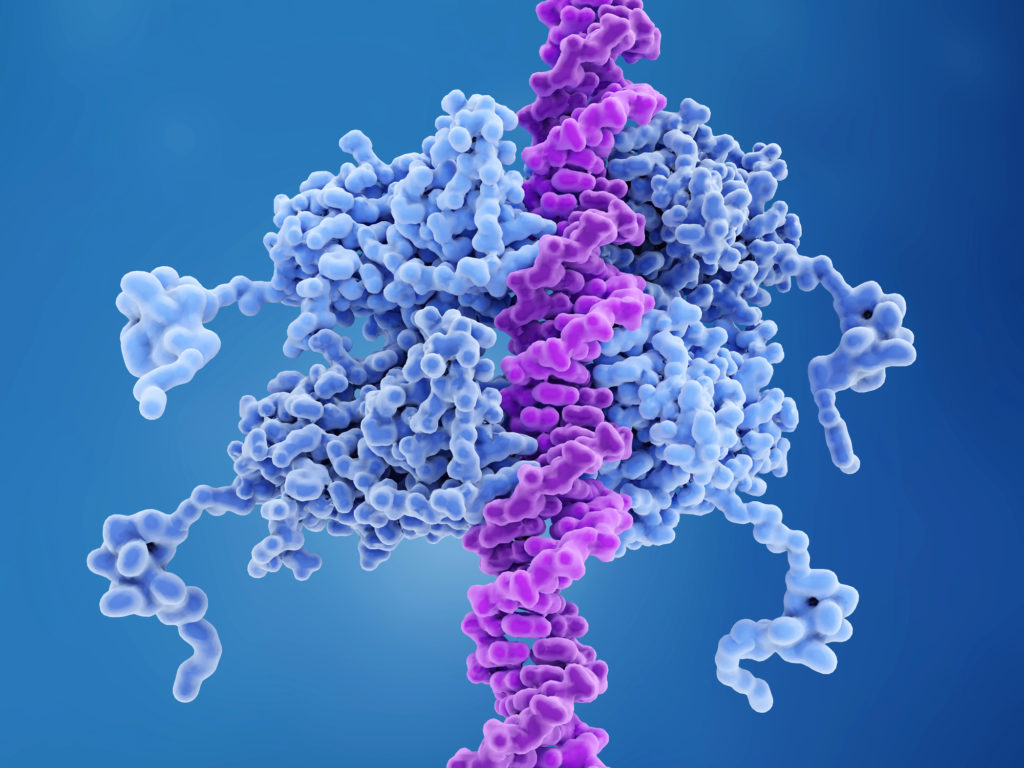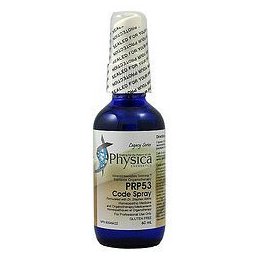
When it comes to understanding the epigenetics of cancer, it can be like going down the rabbit hole. So to keep it simple, I will focus on one particular gene expression called P53. When this gene is working correctly, it helps protect against pathogenic mutations of all kinds. When it does not function properly, however, cancer risk can raise dramatically. There are a few simple things that you can do to insure that that p53 Gene is functioning optimally.
The Importance of the P53 Gene
P53 produces proteins that repair damaged cells. These proteins are also catalysts for a process called apoptosis, or “programmed cell death.” P53 is similar to the BCRA gene in that, when it is working properly, it actually protects against the excessive growth of cancer cells. When it is not working, however, abnormalities are allowed to grow and flourish.
P53 is responsible for regulating cell division. A report published Physica Energetics calls P53 the “master regulator of cell cycle progression.” When P53 senses that there is some kind of stressor, that cells are dividing too fast or that there is some other kind of irregularly, this is when it springs into action. P53 determines if a damaged, rogue cell can be repaired. If it can, it will send word to other genes to fix it. If it cannot be repaired, P53 will signal for the cell to undergo apoptosis, or cancer cell death.
The most extreme P53 mutations, however, will be found when it comes to cancer. According to many studies, P53 mutation are found in half of all human cancers.
How the P53 Gene Becomes Mutated
When P53 is working properly, it becomes most active when acute stress occurs. When this stress is prolonged or even ongoing P53 becomes taxed and mutations in its function begin. When this happens, this essential genetic mechanism simply stops protecting you from cell overgrowth.
What specific factors can lead to P53 mutation? The answer lies mostly in what science calls “epigenetics.”
Epigenetic components are “external influences” that can cause stress in the body and eventually lead to mutations. The great news is that you have control over many of them.
Here is a list of the most common:
Environmental toxins,
Heavy metals such as mercury, aluminum, cadmium
Hormonal stressors such as environmental estrogens
Physical and psychological trauma
Lack of sleep
Pathogenic stress such as bacteria, viruses and parasites
For example, some experts have found that Herpes Virus 6 can attack P53 and lead to mutations. A connection may also exist between radiation/ EMF overexposure and P53 mutations.
What You Can Do to Support Your P53 Genes
There are a lot of things you can do to ensure that all of your genes are working for you, not against you.
Avoid lifestyle and nutritional habits, such as eating the SAD diet
EMF exposure
Lower your stress level with meditation and calm music
Move your body every day and get plenty of Sunshine
Reduce your Toxic exposure as much as possible
Take the time to detox everyday
Utilize key supplements such as specialized forms of calcium and vitamin D3/K2
Basically follow The 7 Essentials System® to support you in creating vibrant health.

Targeted Support with the PRP53 Code Liposome Spray
If you are on a healing path with Breast Cancer, targeted formulas that have a proven track record may be of great benefit for you. One such formula that I have personally used and still do, is the PRP53 Code Liposome Spray by the Canadian company Physica Energetics.
PRP53 Code is a synergistically formulated oral spray which uses nanotechnology to combine several unique ingredients in homeopathic doses to support the healthy function of an overactive or under active Immune System.
A 2002 study conducted by a joint UK-Italian research team found that Breast Cancer patients who have P53 mutation suffered from more aggressive forms.
How do you know if you have a malfunctioning P53 gene? The RGCC Onconomics Plus Test will analyze many genetic SNPS to see where your weaknesses are and how to best support them.
Now that you have some P53-activating tools at your disposal, there is no need to fear breast cancer! P53 really is your “safety net” against pathogens and epigenetic factors. Following the 7 Essentials System™ and using key supplements such as the PRP53 Code Liposome Spray can support your Immune System and improve your health.
Interesting timing. I was just diagnosed with my second right breast cancer tumor. During the MRI they observed a “funky” looking pea sized lymph node. I am being tested next week for mutP53 and other mutations. So far the doctor is thinking Chronic Lymphocytic Leukemia which he suspects has been going on maybe 20 yrs and is the cause of these two breast cancers. After the PET scan, bloodwork and bone marrow biopsy we should hopefully know what we are facing. I then am hoping to undergo my mastectomy with Dr. Ansanelli @ his NY breast cancer laser surgery clinic. Thank you once again for allowing me to attend your virtual breast cancer retreat. I highly recommend the next one to anyone interested in this subject.
Thanks again, MERIDITH from Parker County, TEXAS
Thanks,
Hello Meridith! Thank you so much for sharing your story. I am so happy that you found the retreat helpful! If you are interested, you could consider one of our coaching options. We offer group coaching or personalized one-on-one coaching. Here are the links with the options: https://breastcancerconqueror.com/group/
https://breastcancerconqueror.com/private/
This is great but what do you do if you have the P53 mutation and are fighting MBC?
Thank you
Robin
Hello Robin! Consider the Liposomal P53 that is listed in the blog. You can also consider one of our coaching programs if you would like more one on one assistance. Here is a link where you can consider the options: https://breastcancerconqueror.com/private/